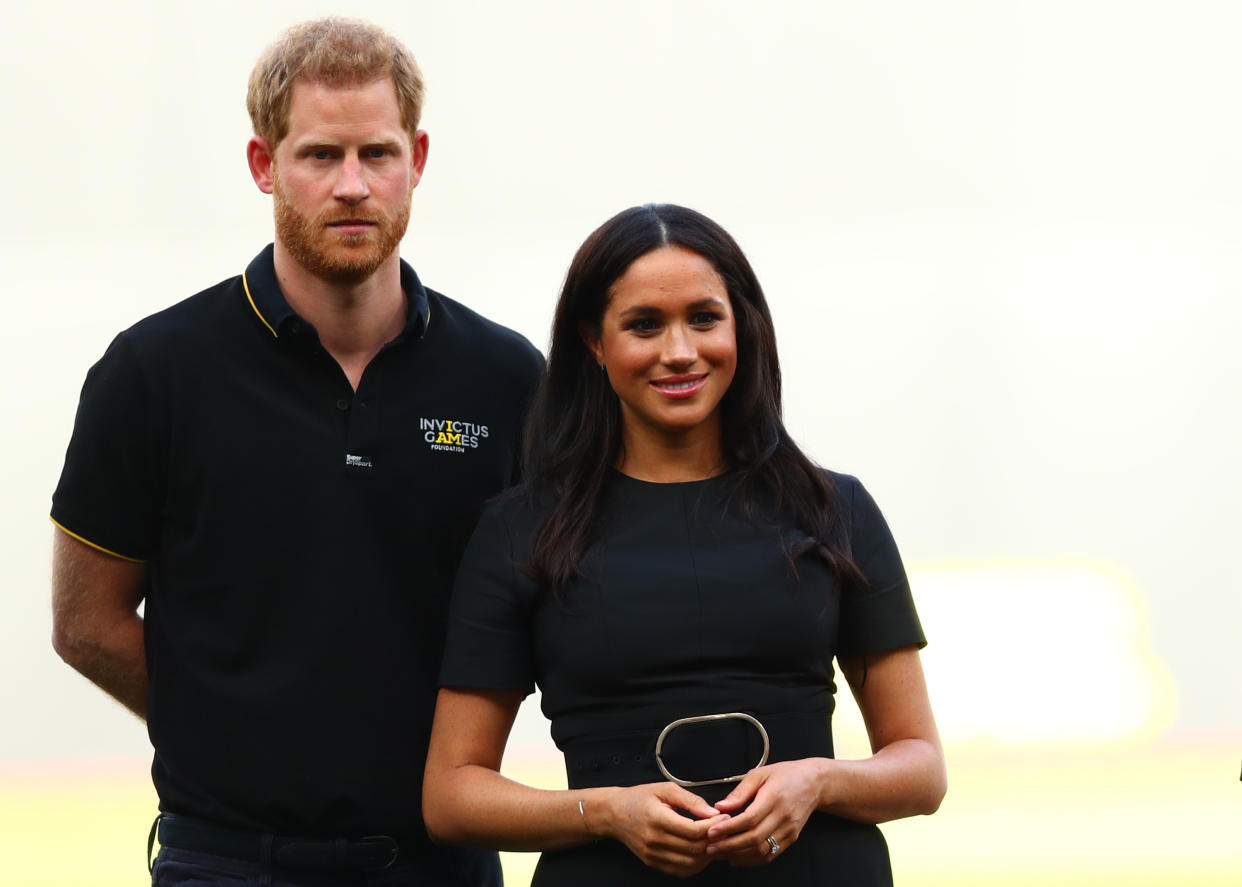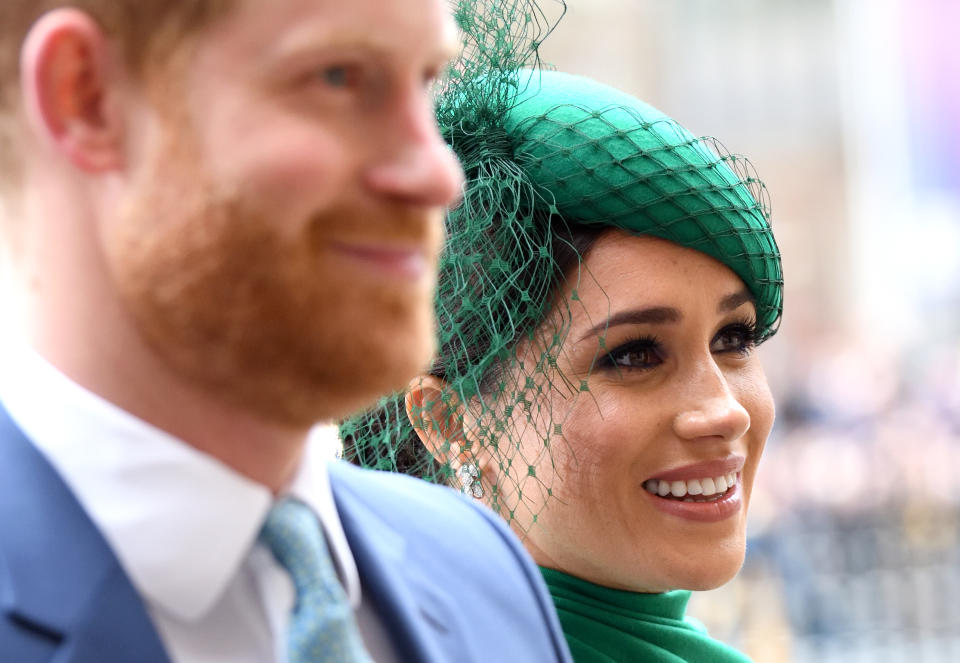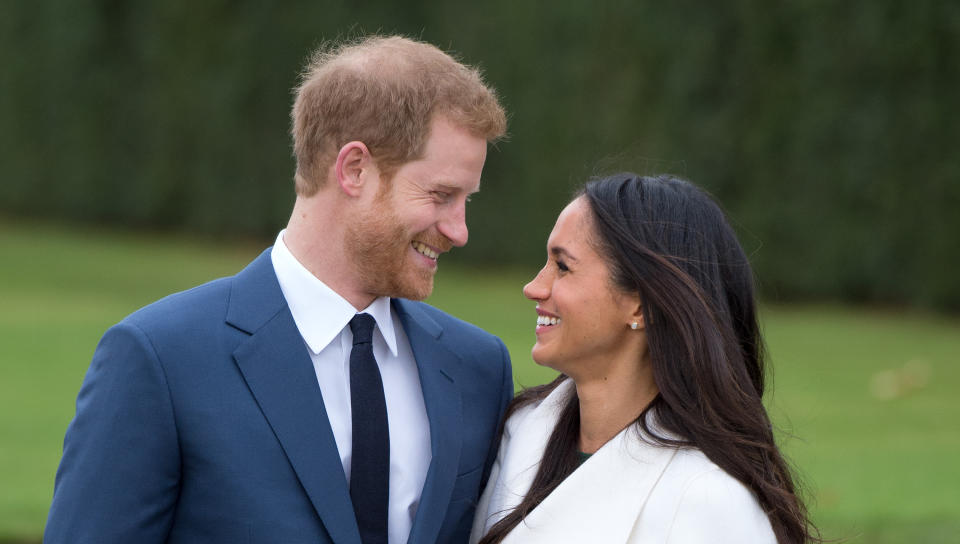Prince Harry and Meghan Markle to pay for own security after Trump said US wouldn't

Prince Harry and Meghan Markle will cover the costs of their security when they stop being senior working royals, a spokeswoman for the couple has said.
The Duke and Duchess of Sussex stepped back from their royal roles on 31 March and last week moved to California to start their new life.
It’s reported they have hired a team of former SAS servicemen to keep them safe as they take on the costs themselves.
Over the weekend, Donald Trump, the US president, said he would not cover the couple’s security costs, after they made a last minute move to Los Angeles before the border with Canada closed.
The presidential tweet forced Harry and Meghan to clarify they would not be requesting US support and had made their own arrangements.
However that left some questions unanswered - primarily who would pay.
If the royals were still senior members, they would be receiving protection from the Metropolitan Police, at the British taxpayers’ expense.
While they were in Canada, they were also protected by the Royal Canadian Mounted Police, at the request of the Met Police.
Read more: 'You may not see us here': Harry and Meghan share final Instagram post from royal account
On Tuesday, the last official day Harry and Meghan were senior royals, a spokeswoman for the Sussexes said: “Security costs are being personally covered by the couple.”
It’s understood Harry’s father Prince Charles will still make a contribution to the couple, which might be taken from his duchy estate, which makes about £21 million annually.
The heir to the throne has other private money he might draw on to help fund their lifestyles.
The bill for protecting the Royal Family is reported to cost the UK about £100 million a year.
But the protection only applies to more senior members - with people like Princess Beatrice and Princess Eugenie only getting cover at events, not in their everyday life.
Estimates of the bill to protect Harry and Meghan have ranged from £3 million to £20 million a year.
There are complications to protecting the couple because of Harry’s time in the military and the transatlantic nature of their lifestyles and work.
Other issues raised include the fact that Met Police officers are not allowed to carry guns in the US, while sharing intelligence concerns with commercial security firms is tricky.

It’s likely Trump wanted to set the record straight because Canada had been paying towards the couple’s security.
Read more: Meghan Markle's six most significant royal moments in 600 days
But there’s a key difference between the US and Canada which explains why - Canada is a commonwealth country.
Therefore as part of the Commonwealth, Canada recognises the Queen as head of state.
That means they have certain obligations which the US does not because the duke and duchess are “internationally protected persons”.
But on Sunday, a spokeswoman for Harry and Meghan said: “The Duke and Duchess of Sussex have no plans to ask the US government for security resources.
“Privately-funded security arrangements have been made.”

Harry and Meghan made a final Instagram post on Sussex Royal on Monday evening, indicating the account would go quiet for some time, while the world grapples with the coronavirus outbreak.
The couple hinted their own plans for their non-profit organisation were delayed, but confirmed the appointment of Catherine St Laurent, who worked for the Bill and Melinda Gates foundation, and their new PR firm, Sunshine Sachs.
The duke and duchess said in a final Instagram post: “What’s most important right now is the health and wellbeing of everyone across the globe and finding solutions for the many issues that have presented themselves as a result of this pandemic.
“As we all find the part we are to play in this global shift and changing of habits, we are focusing this new chapter to understand how we can best contribute.”
A spokeswoman for the couple said: “The Duke and Duchess of Sussex will spend the next few months focusing on their family and continuing to do what they can, safely and privately, to support and work with their pre-existing charitable commitments while developing their future non-profit organisation.”


